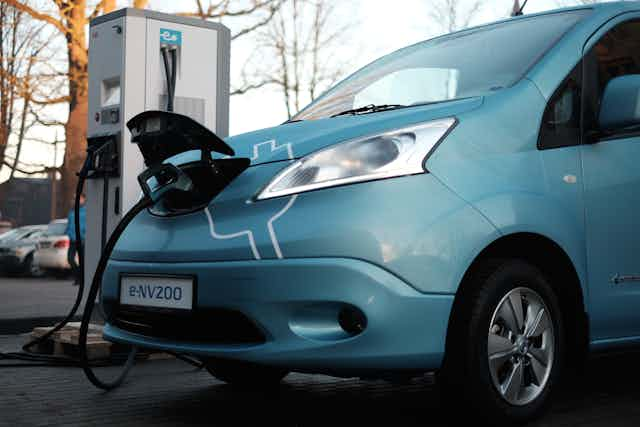With as many as 40,000 premature deaths linked to air pollution each year, five UK cities are considering a novel approach to reduce emissions. Birmingham, Leeds, Nottingham, Derby and Southampton may adopt “clean air zones”, where electric cars are given priority, as part of a £40m government initiative to tackle pollution. By 2020, the drivers of electric vehicles could have their own designated lanes, priority at traffic lights and exemptions from one-way systems.
Transport currently contributes about 21% of the UK’s total greenhouse gas emissions, so it’s clear that efforts should be made to reduce pollution from road traffic – not least because the Supreme Court has ordered the government to do so. Indeed, action on air pollution is widely supported in principle (if not in practice) by the public
Yet there’s a real risk that, without proper thought or consultation, the plans could become a white elephant, especially if they create more congestion, affect road safety or fail to make electric vehicles a more appealing option for drivers.
Expensive and unproven
Registrations of ultra-low emissions vehicles, such as plug-in electric cars, are rising. Between April and June 2016, some 9,700 electric vehicles were registered, compared with almost 2,700 in the same period in 2014.
But while this represents a substantial rise of about 250%, the increase comes from a low base. The actual numbers of electric vehicles are marginal, with about 90,000 cars and vans compared to a total of 36.5m vehicles on the UK’s roads.
While prioritising electric vehicles may provide quicker and cleaner travel and help to improve air quality, there’s some doubt that it will actually encourage significantly more people to use electric cars.
For many, electric cars remain an expensive and unproven option. They’re not likely to become cheaper to own until the 2020s, and even that will depend on the price of oil and the development of battery technology. In the meantime, some drivers may feel that the lack of charging points throughout most cities would limit the range and curtail the convenience of electric cars.

Also, not all owners would use sustainable sources of power when recharging. Currently, less than a quarter of the UK’s energy is generated from renewable sources, so it’s not clear that encouraging the use of electric cars will lead to significant reductions in emissions.
So, it seems likely that many drivers will still opt for fossil-fuel cars over electric ones. Meanwhile, there’s no guarantee that those who do purchase electric vehicles will have destinations served by the priority measures.
Traffic jam
There are still further concerns with the schemes: if the priority lanes are poorly designed, it could actually increase congestion and pollution in cities. There’s little point in keeping petrol or diesel engines ticking over in heavy traffic, when the overall objective of the scheme is to reduce emissions. And in any case, if the lanes are not properly enforced then they could be subject to misuse. Similar issues face proposals to give electric cars priority at traffic signals.
Allowing electric vehicles to travel in their own lanes in the opposite direction to an established one-way system could increase congestion at the points where the electric vehicles enter and leave the new lanes. Worse, road safety could be compromised if pedestrians are unaware of electric vehicles – which are quieter than conventional vehicles – approaching from the “wrong” direction.
So, the benefits arising from such schemes may only apply at the margins. It’s possible that £40m might be better spent on more direct ways of encouraging a switch to electric cars – for example, through subsidising the cost of buying one.
It might be even better to invest in reducing congestion on key routes, while controlling demand for car use through heavier restrictions and increased charges on parking.
Approaches such as these could yield greater benefits in reducing emissions in a more direct and measurable way, which may prove more acceptable to the public, who might otherwise see preferential electric car priority schemes as a waste of space.

